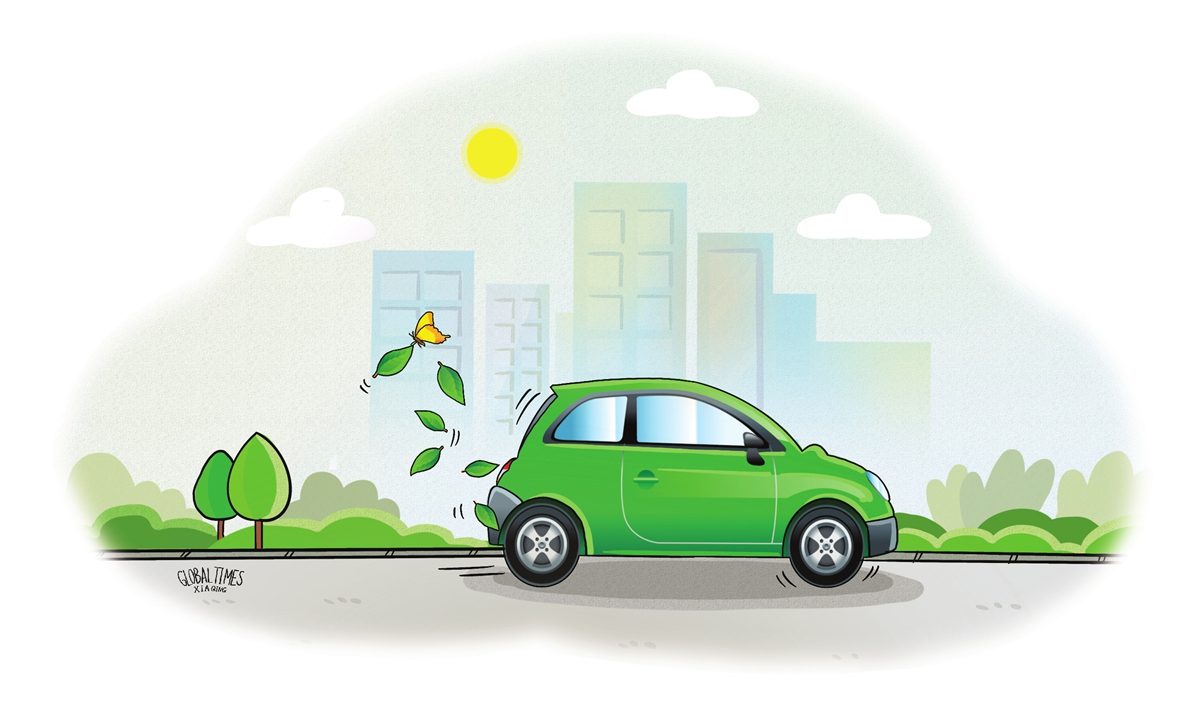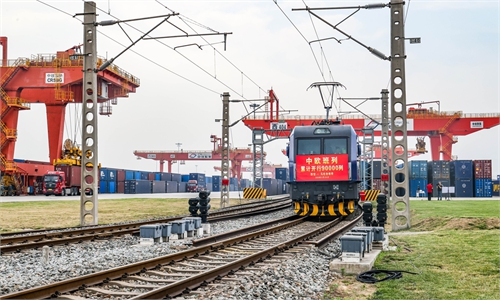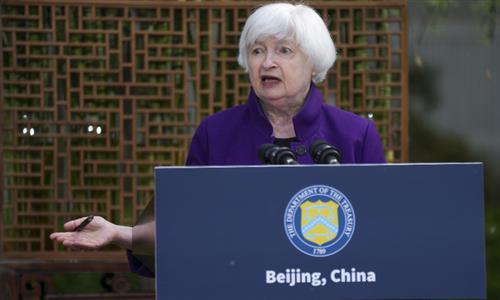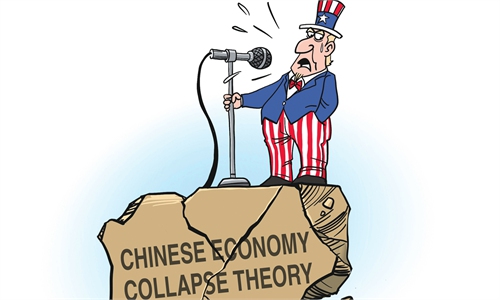
Illustration: Xia Qing/Global Times
Last week, Chinese car exporter Chery announced the launch of its newest model, the Omoda brand, in the British market. The firm has set up 60 dealerships to sell its vehicles in the UK, and its dealer network is set to expand to 100, according to the Financial Times.
The UK's embrace of Chinese car manufacturers stands in sharp contrast to its counterparts. Using a false and misleading narrative that China is engaging in "overcapacity" and "dumping" vehicles on Western markets to export economic problems, the US, EU and Canada have all announced various levies on Chinese electric vehicles (EVs).
Overall, these "concerns" have been motivated by geopolitical considerations, seeking to prevent China from dominating "global supply chains," even at their own expense, despite the more pressing global urgency to fight climate change and transition to renewable energy.
China is not exporting these cars due to "overcapacity," but rather because there is demand and the countries in question are not able to produce the cars or necessary components, such as batteries, at a scale to meet their own needs.
Amid mass hysteria and attacks on Chinese EVs, the UK has chosen to differentiate itself. What is it that makes the UK different?
First of all, it has recently undergone a change of government, from one which was ideologically and opportunistically anti-China, to one that, when its national interests are involved, is moderate and sensible. The Labour government of Keir Starmer has focused on a more progressive foreign policy that has sought to carefully reset ties with Beijing and act pragmatically, recognizing that China is an important economic partner to the UK. In taking office, the new administration has also inherited crippling economic problems from its predecessor which include surging costs of inflation, shrinking incomes, stagnant GDP and a "£22 billion black hole" in the national budget.
This grim reality has set in that Britain simply cannot afford to let its ties with China further deteriorate. Attacking Chinese EVs is typically unilateral protectionist practice that violates WTO rules, which would not only contribute to a growing inflation in Britain that would hurt people's pockets, but it would result in countermeasures harming British exports.
Next, UK's climate goals cannot be undermined by geopolitics. It has been made clear by the new cabinet that cooperation with China on climate change is an essential area of the relationship. In practice, this means utilizing China's advantages in terms of its ability to mass produce renewable energy goods including solar panels, wind farms and EVs. There is no other country in the world able to foster a comprehensive, efficient and affordable clean energy supply chain on a mass scale.
In addition to this, Britain's ultra-free market policies, imposed since the Margaret Thatcher era of the 1980s, have arguably led to the deterioration of the British automobile manufacturing industry and a free-for-all for foreign competitors and importers. Therefore, this mind-set welcomes Chinese firms such as Chery. While Britain continues to have its own niche market of luxury car brands, such as Bentley, Rolls Royce and Aston Martin, they aren't for ordinary people and the EVs they make aren't for mass consumption.
Instead, the only actual "market tier" EV produced in the UK is the Nissan Leaf, which is also seen as expensive and barely capable of meeting demand. Therefore, with respect to Britain's market needs and climate goals, it is absolutely untenable, if not insane, to launch a protectionist assault on Chinese EVs. The country's poor economic situation, the historical hollowing out of its manufacturing capacity, the disastrous policies of the previous government and the urgency of reducing emissions mean it's pragmatic and wise for Britain to avoid a trade conflict. For UK, Chinese EVs are an asset, not a hindrance. You should not bite the hand that feeds you.
The author is a political and historical relations analyst. opinion@globaltimes.com.cn



